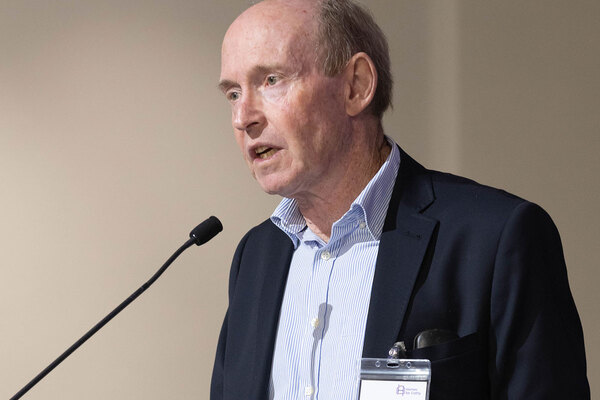You are viewing 1 of your 1 free articles
Major house builder warns sector cannot maintain cross-subsidy model without grant increase
The head of a major house builder has warned that the sector cannot continue with the cross-subsidy model “at these levels” without an increase in grant funding from the government.

Rob Perrins, chief executive of Berkeley Group, said the developer was not investing in new projects, amid an “uncertain, unpredictable and burdensome” environment for housebuilding.
Commenting on Berkeley’s latest stock market update, he said: “We are wholly aligned with the ambition to build more quality, affordable and private homes where they are most needed, and to play our full part in meeting the country’s net-zero target.
“However, the burden of achieving this, at a time when the economy is adjusting to more normal conditions following a decade of zero interest rates, must be recognised and priorities set, as housing cannot continue to cross-subsidise at these levels without increased public funding.”
The cross-subsidy model requires developers and housing associations to raise money through selling private-sale homes to fund affordable housebuilding.
However, the model has struggled in recent years, particularly in London, due to downturns in the housing market making it difficult to sell private-sale homes.
Housing associations have warned that reliance on cross-subsidy means they are more exposed to market fluctuations, and they have argued that more grant funding would increase their ability to build through downturns.
Berkeley’s interim results for the six months to the end of October show a pre-tax profit of £298m and an operating margin of 19.5%. It also increased its cash reserves from £410m to £422m.
The house builder specialises in brownfield regeneration, but Mr Perrins said it had become “increasingly difficult” to progress this type of development.
He added: “Changes to planning, tax and regulatory regimes have created an increasingly uncertain, unpredictable and burdensome environment.”
He said Berkeley had paused land-buying and had “no plans to invest in the future, not until planning and regulation are sorted out”.
However, Mr Perrins was more optimistic about rising construction costs, saying, “We are seeing deflation in our build costs for the first time”, following a period of sharp price rises.
In March, Berkeley said a separate planning category for brownfield developments was necessary as a result of the proposed changes to the National Planning Policy Framework.
Sign up for our development and finance newsletter
Already have an account? Click here to manage your newsletters











